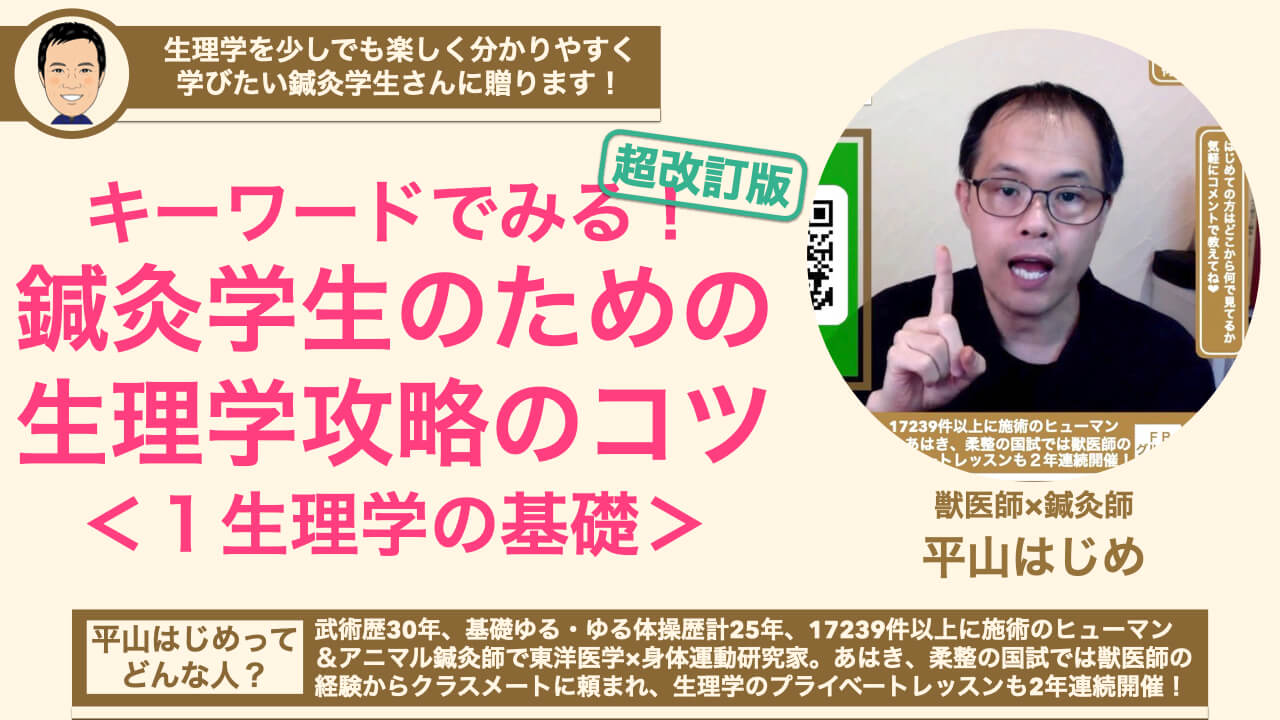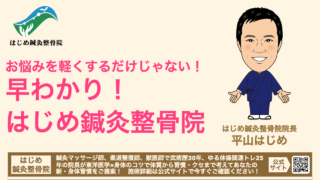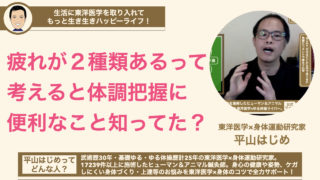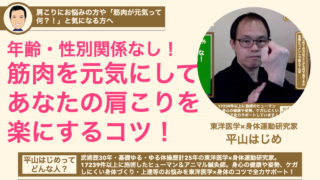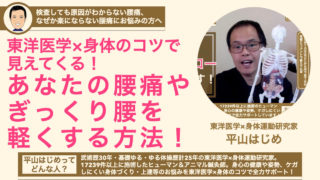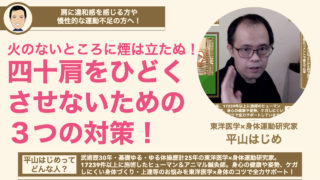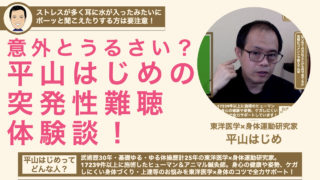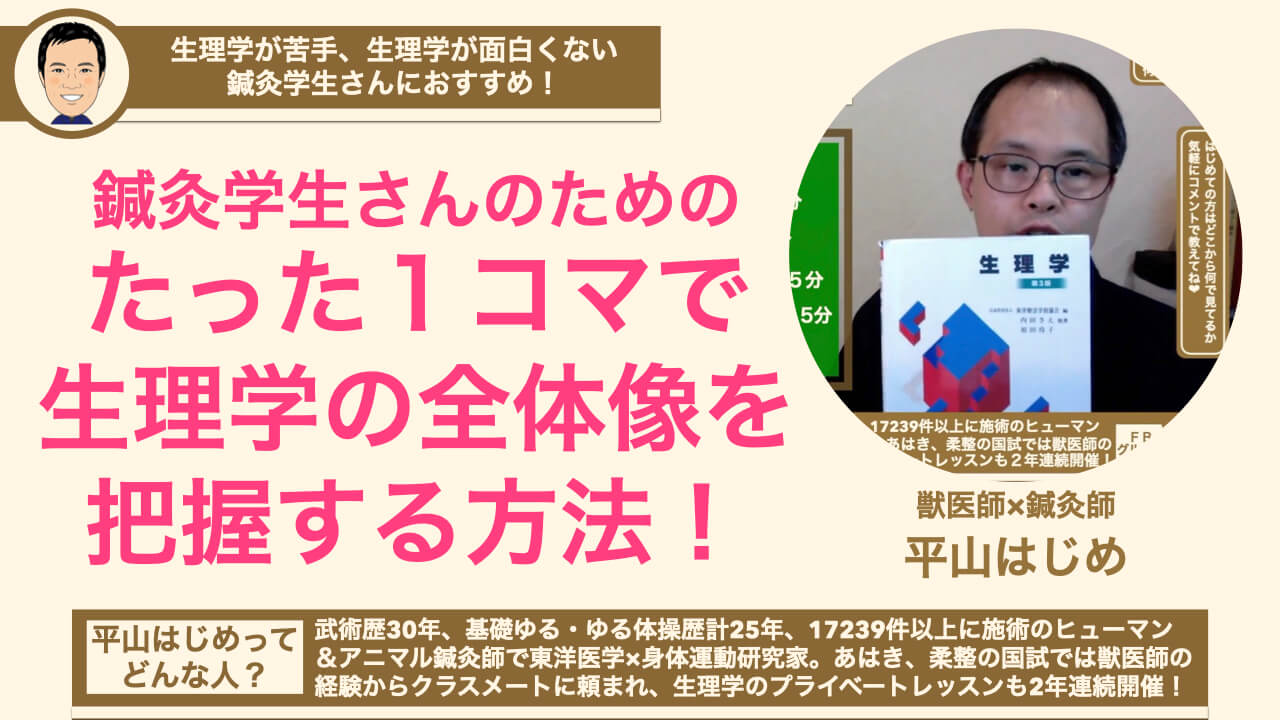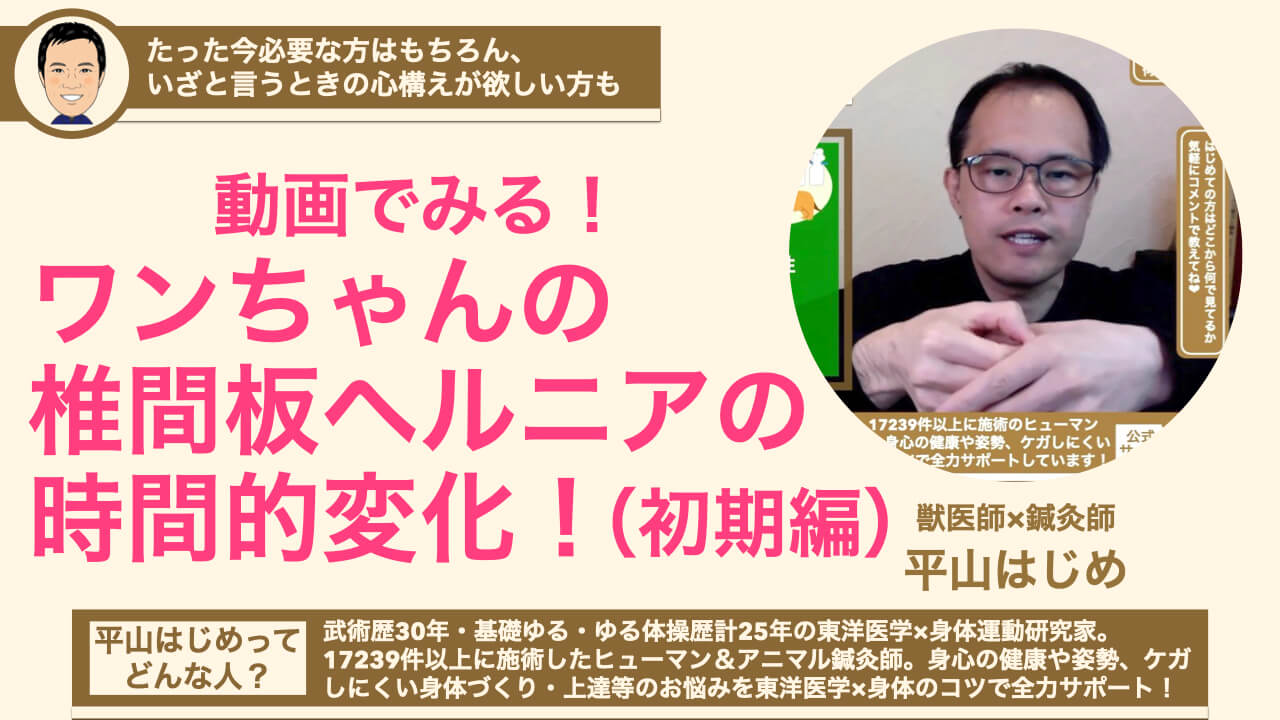超改訂版!キーワードでみる!鍼灸学生のための生理学攻略のコツ!<1生理学の基礎> | 【見やすく編集されたアーカイブ動画で今すぐどうぞ!】
今回の朝ライブ、予告通り「キーワードでみる!鍼灸学生のための生理学攻略のコツ!」なのですが、昨夜寝て起きたら、閃いていたので内容を変更します!
本日は「キーワードでみる!鍼灸学生のための生理学攻略のコツ!<1生理学の基礎>」をお話しします!... | By 平山はじめ | Yes, nice to meet you again, eh, from Hashigawa City, Hokkaido, eh eh eh, pharmacist, eh, Hirayama Kamakura, I want to talk about you. Thank you for your support again today. I'll start live streaming again this morning. Eh, I'm talking about a physical exercise researcher with Oriental Medicine, but well, I'm a veterinarian. Eh, well, one way, eh, I learned western medicine, and on the way, ah, ah, ah. Ah, ah. I achieved Aiki and started doing martial arts like Aikido's relative. I thought my body was interesting. I was incorporating some loose physique as a training method for that practice. Eh, well, ah, if I were thinking about drawing in that direction, eh, ah, uh, without surgery, I turned into oriental medicine, yeah, a lecturer, ah. So, back then, back in the vocational school days, uh, see, I took quite a few classes and lectures, and everyone, I don't really understand my classmates. I've heard a lot of people say I don't know what the teacher said. So, well, by the way, when you explain it like this, it becomes easy to understand, and before you say that, between classmates, and after that class, or on a day off, like a private lesson, I guess it's like a home tutor. Eh, uh, uh, what kind of physiology lesson is this? I did it all in one book, well, and I did it all for two years. Well, in fact, it feels like I did two weeks of physiology. Ah, there's a story lesson. So, I'm really happy to be told that it's easy to understand. I've talked about it. Well, it's been quite a few years, but well, this time, I've started live broadcasting, so why don't we talk about Physiology live broadcasting, live broadcasting, and I'm like to God, yeah, I thought so, this time, eh, eh, eh physiology, everyone, I'm going to start a study group for you to enjoy Physiology. What happened? Hey. So, uh, today's, for that, uh, preview, keyword, play lecture maybe? Er. Keywords. Er. The tricks of physiological strategies for pre-school students. Er. I. want to talk about the basics of physiology. I'm talking, right to the point. But, this morning, I thought I was going to do a live broadcast today, and I woke up in the morning, "Ah, wouldn't this be easy to understand, but I realized it, and in the morning, I had already fixed all the slides, and well, I recreated them, and today, it's a super underwater version, eh, the number one trick in physiological strategy, the basis of physiology, so I'm going to talk about it, so please look forward to it. That's all right. Ah, ah, that's right. Physiology for Okinawa students seen in keywords, strategy tricks, number one, the basis of physiology, and the super-sea version, so let's talk about it. That's all right. Yes, this live broadcast, I'd appreciate it if you could ask questions, questions, etc. For example, which of which of the prefectures are greeting you from? I mean, uh, this is my first time, it says "give me a nickname", but uh, if you leave a comment on Facebook from noon to noon, uh, it shows up at the bottom of this. I mean what you can show. It's like this, eh, you can display it. Hey, good morning to you. Good morning. I'm watching you from Kagawa Prefecture City. Good morning, Pyon. Thank you for broadcasting today. Thanks for watching this. Today, the other day, the atmosphere is a bit different from usual, and we're talking about physiology, but hey, please check it out. Well, well, I'd like to get started. Yes, that's how it is, oh, you can see comments. So, so, I can share with you all, uh, questions, and thoughts, and here, uh, this part, oh, that part, oh, this part, that part becomes hard to understand, uh, that part becomes difficult to understand, yeah, that part, that part is hard to understand, eh, that part, yeah, communicate, that part, so please, yeah, communication, oh, yeah, comment, I think I'd be happy if I could. Yeah, first comment and comments are also welcome, and yes, archive this video, eh, what? If you see it in the archived videos, please feel free to comment. From Facebook page, please comment. That's all right. Ok ok, here we go. Hey. O.M. He's cool, isn't he? Yo, wait a minute yo. I'm in there. Yes, yes, so, I'm going to look at it from the keywords again today, eh, the foundations of physiology, eh, the characteristics of physiological functions, eh, this hasn't been covered in national exams for about ten years, but, this environment, homeostasis, or individuals, organ system, organization, cellular, etc. This kind of thing will be keywords. So, what's the Naha border, what's homeostasis, etc., etc., I want to relax and see this picture. Well, this is how it feels. First of all, what is a life phenomenon, the pain of life as a human being, is written on the right and above, but this is about us, oh, in our lives, it's so obvious, for example, e.g., eating, excluding, eh, breathing, eh, well, exercising, growing, and making an uterus, it's very obvious, but for us humans. So, this is why we call life as a human, a phenomenon of life, as a human, ah, ah, the pain of life. So, yeah, there are cellular systems, institutions, systems, and individuals, but the individual is this proud doll. There are lots of human bodies out there, but this one, eh, human, is the answer. And among those answers, for example, the digestive system, the excretory system, e.g., the respiratory system, the exercise system, and the various parts of the body can be categorized from their roles to their parts of the body. Like the sensory system, the digestive system, and the heart, well, the respiratory system, and the lungs also enter, but like the gastrointestinal system, endocrine system, and, uh, reproductive system. This is how the period shapes are lined up. This period form ehh it becomes the most important thing on the next slide so ehh wait keep it as a point And the organization . When it comes to organization, now, uh, cellular level, story, cell sorry. At the microscope level, we're starting to talk. Is it the outer skin, the tissue tissue, the organization close to the skin, or, uh, the organization that supports and supports all kinds of organizations, or the union organization that sticks together all kinds of organizations together? I wonder what it is? Is it the image of making the organization solid? After all, muscular system, muscles, err, nerve related nerves, organization. And if you look closer, it's on the microscope level. Think it's cells, eh, just like that, just like that. Just like that, just that, one person. When you look at it gradually from a human, it's like, it's a mess, a mess, an organization, a cell. Eh, it's all messed up. This is actually written in the textbook in the order of cellular tissue, organs, institutional systems, individuals, eh, eh, eh? This is actually the idea of people who are always confused about cells using microscopes. At first, it's better to look at the whole thing, and gradually look at it in detail, eh, it's the first time I've touched physiology. I thought it would be easier for students to understand, so I turned it in this order. So, uh, there is an environment, but uh, there is a body, uh, the outside of the body, the environment is the part that you surround yourself around yourself. So, uh, now I've got things like the digestive system, excrement system, and respiratory system, but if I talk about it, uh, if I understand what's going on, I'll understand what's next. This is the basis of menstrual cycle, right, that, that, one, two, and three breathing, but it looks like that period form. Eh, if you understand the classification, it's this point of view. Ah, why are you lining up with this kind of wind, it's starting to look a bit. Uh, so this whole next step of the agenda is going to be very important. Yeah, and you call it "stretch" and "stretch osterasis". Well, first of all, internal environment is a word, but internal environment, this, that, that, there are cells in the body. This cell, eh, for cells, eh, around the body, eh, exists. You may call it cellular extermination, but this, uh, cellular extermination part is the environment for the cells, that is, uh, environment for the cells in the body, meaning internal environment. So, at this point, uh, uh, this is a point, so I'm talking about it here too, but uh, for example, there's a ball on the table. So if it dawns and falls doesn't it ever go back to natural. Can You Get It ? And there's this, uh, Seasawane. Eh, physical phenomena are always like this, it's balanced. The balance is balanced. So, is this OK, is this OK? Normally, thinking in physics is this ok? Normally, in physics, a ball dropped doesn't come back. However, the phenomenon of life is balanced. This is funny, hey, you guys, hey, I don't think it's funny because you're already life, but this, that, that, and that, being balanced without falling, is something like that. Life is a special feature. They think it's weird, so if you pretend that you need to study, I think you might get a little more interested in physiology. So, being balanced like this means that you're starsis, doesn't it? Yes, I will be next. Next time, I'll be there. Next up, cell structure and work, cell quality, writing, DE ヌER ールRA 、A, protein synthesis, these will be keywords, so as to point out keywords like this, eh, eh, I think it will be easier to learn. Well, if you actually see what it's going to be like, there's this kind of bacteria and quality of cells. Eh, cells and cells, oh, yeah, the surrounding area, it's a mystery, it's not a mystery, you think. You think you're a fool. And you think this is a joke. So this bacteria won't appear in a national test, but you still think it's a joke. So, this doesn't appear in the National Exam for Cells, but it's super important. This isn't just separating the inside and outside of cells, for example, through the cells, matter enters and exits. And then, uh, nerves, muscles, uh, receiving information from other cells, uh, getting information, and getting excited about it, that-other information, and relay more information, and communication more information, and that are basically the cells, so this cell is, uh, no, it's so necessary, but it's interesting. So cellulite is the inside of the cell, uh, part of it. So, while learning about this, for example, small organs of a cell, e.g., soluble ion, uh, look, I think it would be good if I get it. Now that's going to be a bacteria cesspool. Cells, this, ehh, the upper side of this red thing is cellular. Cells are the bottom, the inside of the cell. So, this cell is like this. When you zoom in, you can see proteins, fat proteins, and then this cell is double or thirty structures. Eh, the red part and the yellow inside, eh, they overlapping. So, this, uh, cell is double-layered, is called double-layer, but this red part is easy to get used to, uh, water. So the inside, err, the salt part, the salt part is, uh, it's hard to get used to water because it's hard. So, that's why a water tank means it's easy to get used to. Ehh, a water vessel is a word that is hard to get used to water because it is oil. Just because it's difficult to write this, I wonder if it's easy to get used to water, it's going to be easier to understand. So, this is about small organs of cells, eh, today is now, eh, today it's about tricks today, so I don't have to go into detail, but it's protein synthesis, eh, how is it synthesized? This is what DNA, RNA is like, eh, train and study. Well, there is still more in the short term. I think it's better to focus on cellular analysis, and I'm talking while holding on to that topic. I think it'll be good to continue studying. And metabolism of matter, assimilation and so on, analyses and internal respiration, what is this? It's a story, but yes, this is what it is. It's a story about how to get energy out of this, this, eh, substance into your body. That's all right. Well, there's something to do about it. Please please there is a story of taking out the energy that you put in the booth. And an internal breath. This, that, that, this is real, eh, in the study group, we talk about everything, but uh, this is the story about how glucose, glucose and glucose into glucose and glycose and glysugar to get energy. And look at this far, oh, it's back a little. I've just seen H2O and CO2, but what about chemistry? Science, folks. This is science. If you don't understand the basics at all, you'll get a lot of resistance. So, chemistry isn't physiology, so it's mostly done in class. Can't you do it for me. So, it's about chemistry, basic trees, so I think I'll spend an hour as a field. I'm planning for next week, but I'm going to talk about today, progress, today, and in the afternoon, about the part of this so far, but this part of the chemical plan, about that, and about CO2, but I'm talking about various molecules. Ion even mean what anymore ? That's what I'm saying. I have a connection with electronics, but it's a bit easier to understand, I want to talk about it and explain it. See you, eh, mor and stuff, I'll be out. This is Moru. That's what it is. It's a dozen. It's true. Ah, the molecules, when a few of them are gathered together, they talk about one morule. Well, it's called moru, but it's better to hold the story of that morule. Physiology is becoming a bit complicated. And we say PH keher or PH but uh, PH. PH. I agree with this, too. Even though the numbers are low, it's getting thinner, eh, I want to keep talking about how alkaline is when the numbers are big, but it's getting lighter. And, and, color of matter, lots and lots, roca and etc, eh, there is. And there's the dancing one. Ehh, spreading is like melting sugar in coffee. Loca means uh uh uh what is that. Eh, filter coffee pot, filter it, that feeling filter. Just a second to go. Well, half-square makes the point. Cellophane and other things, uh, cells are reactive, but uh, to put it simply, water can pass through, but the dissolved substances don't pass through is the peninsula mark. By using this thing called Peninsula Lake, eh, peninsula Maku, eh, Peninsula Maku, uh, if you divide saliva from the way to the way, eh, when water moves, eh, clouds occur, water movement happens, what is this, eh, eh, it becomes the basis of the movement of matter. Yeah, and if you know that, yeah, and if you get that, eh, retirement lawn, eh, yes, and if you understand that, eh, retired lawn, eh, working, and that, eh, no, fluid parts, bad, ph, sheetworth came out too. These things are getting easier to understand, so, ehh, I think I'd better keep these things in place. Huh, what is atmospheric classification, it's how much water is inside the cell and how much water is outside the cell. So, I wonder what would happen if you think about this with someone weighing 60 kilograms? If you grasp this, it will be easier to imagine. Hey, eh, if you imagine that total moisture is a cellular fluid, and cell cancer liquid is a palm, I think you have earned points. Eh, body fluid again, thermometer, eh, body fluid PH, cold liquid bacteria, now, oh, I showed you a little slide a while ago, but to keep that in mind, well, what kind of ion are inside the cell, and what kind of ions are on the outside of the cell, eh, it's getting easier to see. Remember that there's a lot of sodium on the outside of the cell, eh, there's sodium and curry, and they're balanced, so they're mixed, so they've balanced, so they are balanced, so if they remember just sodium, it's a bit, it's balanced, so if I remember just sodium it's a little, it's just a bit, uh, I think it'll make it easier to imagine. Next time, we'll change the water. So the water level and water level balance, eh, this is all sorts of things, oh, and the period system is involved, but the question here is to look at how much water you put in a day, how much you take out, and take out, and that's the point here. Yes, this is yes, this is not a problem of matter, or welfare, but it is a fundamental part of physiology, so please take a look at it. Eh, spread, lies, half class, this was a while ago, I showed you a bit of a joke. Eh, humidity forecast, eh, mixing ingredients, etc. eh, I want to talk about that kind of thing. This is a prank I showed you earlier, but first of all, uh, the term "fiber" and "fiber" is the same as the basics of chemistry, so uh, the point is that the movement of matter occurs without using energy. Eh, that's what you call passive transport without using energy. On the one hand, if you ask what's going on inside the cells, you use energy energy, and make predictions. And then comes the anticipation of energy consumption. So, the anticipation of using energy happens, that's great, that's what, that's how, that's the characteristic of using energy, huh, that's so special as a creature. So, Nothin, uh, Macdo, the process of that substance being transported into the cells and then being inserted inside the cells is a struggle process, well, it's called a static transport, but they want to imagine how child trafficking is done. Well, it's obvious here. I wonder if this drug is very, very, very specific to organisms and cells. It's different from normal ones, and it's called active transmissions, which means it's different from passive transmissions. Well, the sequel is nice here. All right, yes, then, once, for a while, I'll be back. Well, then, uh, it's like this, uh, when you look at it, uh, physiology is easy to approach, so please, uh, I hope you keep studying, uh, this, uh, this is, uh, the story, a little more, be more detailed, eh, for those in the study group, uh, I'm going to give lectures. So this is the study group live broadcast, well, it's totally free, you can join. Hey. Eh, a Facebook group for pre-school students who really want to take part in Physiology. This is a Facebook group. If you download this QR code, it will go to the Facebook group, so this is a Facebook group with top images, so I hope you can join it. But it's a Facebook group that's completely free, isn't it strange? So what do you mean, sorry terms and conditions, let me have two. Ehh, when you participate, be sure to leave a comment, questions, etc. Hey, uh, another thing, uh, it says pay for some content from archive videos, but that means, this, use slides, use slides, eh, I showed you before, eh, but uh, using slides, eh, easy to understand, eh, study meetings, physiology, I'm going to talk about it. So, when I ask you how are you going to talk about physiology, I'm going to show you a little more specific, uh, but this is the picture I showed you earlier, but uh, if you use it, uh, the slide, when you use it, eh, the lungs, eh, the brain, eh, the kidney, eh, the stomach, eh, the breast, eh, the liver, eh, the calf, the fifth, if you use the slides, it becomes easier to understand. One by one, eh, it's moving so it's easier to talk about and uh, it's easy to see as a slide. Even though there are some branches, they fall from the top of this table. So the ball dropped doesn't go back on the table, it's like a slide, follow it properly makes it easier to understand. It's not just that there's a blackboard with a mirror, eh, more, I'm going to have an easy-to-understand conversation, eh, here you go. Yeah. Please watch and join us. Well, well. Yes, well, I'll be back soon. Hey, it's like this, it's just like that, it's used for a slide, it's been like this, it used for a slide. Earlier, eh, I wrote it like, write your comments, and so on, but it's different, right? This is a question, because it's a live broadcast, so if you comment, a question, you can reply on the spot. Isn't that interesting? The question on the spot is, "Oh, Oh, Oh, If you leave a comment, let's have a live broadcast study session like this, where we can read and reply to you. That kind of live broadcasting is completely free. You can participate, so please, ehh, I hope you can participate in this Facebook group as well. Ehh, the completely free live broadcasting study group will open in April, 2017. Today, ehh, the first session will begin. I'm not in a group today, but I'm going to have a conversation like that, normally, calmly. Eh, what? Yes, it's not closed in the group, but it's open. Today, the other day, the first lecture, eh, I'm going to be broadcast live, so please join us. And this live broadcast is of course a live broadcast, so I think there are times that it's not convenient for you, but if you miss it, you can check it out in the archive, so I think you can use it safely. Eh, uh, this is a Facebook group for students who want to seriously take up physiology. Eh, this, if you can read the QR code, you can put it up, so please, eh, please join us. Today, in the afternoon, eh, the characteristics of the organizing function, eh, I'm going to talk about it, eh, this is still open, so it's the first time. Anyone can view it. Please feel free to join us. Next week, well, this, that, that, eh, physiology, eh, no, depends on how advanced the characteristics of physiological functions are. However, ehh, next Wednesday, starting at 3:30 p.m., 3 p.m., around 3:00 p.m., and about 5:00 p.m., I'm planning to talk about the basics of chemistry. The Basics of Shitology. Hey, I don't really know anything about chemistry, but if you think so, please, uh, check this out too. Today's keyword of the day: Sortology for prenatal students: Strategic tricks, yeah, the basis of consistent physiology, yeah, I want to go that far. Well, another day, well, thank you for watching. Well, yeah, a human and animal lecturer and physical exercise researcher studying oriental medicine. Well, in the Hirayama live broadcast, we didn't teach you about home medicine, tips on how to use the body, and how to socialize with animals today, but yeah, we're talking about medicine like this, so yeah, if you're interested in it, please like and follow me. If you're interested, please like or follow me. We are waiting for you. Thank you in advance. Well, by the way, thank you for watching today. See you again this afternoon. Well, I'll talk to you, so please join me. Yes, well, today I'm going to talk about the dressing room. I'll talk a little bit, but when I wake up, I thought that if I put the slides in, it would be easier to understand. If I show you can use these slides, I thought it would be a little easier to understand. But, I got up from there and re-make the slide, re-make, or that slide, I changed and adjusted it in order, so I did it, but how was it? It's rare, but I did it, how was it? It's rare, eh, it's interesting. I did it, but how was it? It's rare, eh, if you think you might be interested, eh, I'm happy. I did, but how was it? Not often, eh, if you think you're interested, eh, I'd be happy. Well, by all means, I'm on Facebook, but how was it? Not often, eh, if you think you're interested, eh, I'd be happy. Eh, by all means, even in the Facebook group, eh, in Facebook, eh, if you could comment, I would be very happy, eh, I hope we could be friends again. Yes, then, eh, today's Ne, eh, human and animal lecturer and physical exercise researcher studying oriental medicine, eh, live broadcast, eh, today, eh. Well, another day, have a great day. Yes, and then again, eh, maybe later, eh, afternoon, looking forward to meeting you. Looking forward to seeing you again next time. Thank you for watching us today. Let's meet again
【見やすく編集されたアーカイブ動画で今すぐどうぞ!】 今回の朝ライブ、予告通り「キーワードでみる!鍼灸学生のための生理学攻略のコツ!」なのですが、昨夜寝て起きたら、閃いていたので内容を変更します! 本日は「キーワードでみる!鍼灸学生のための...
